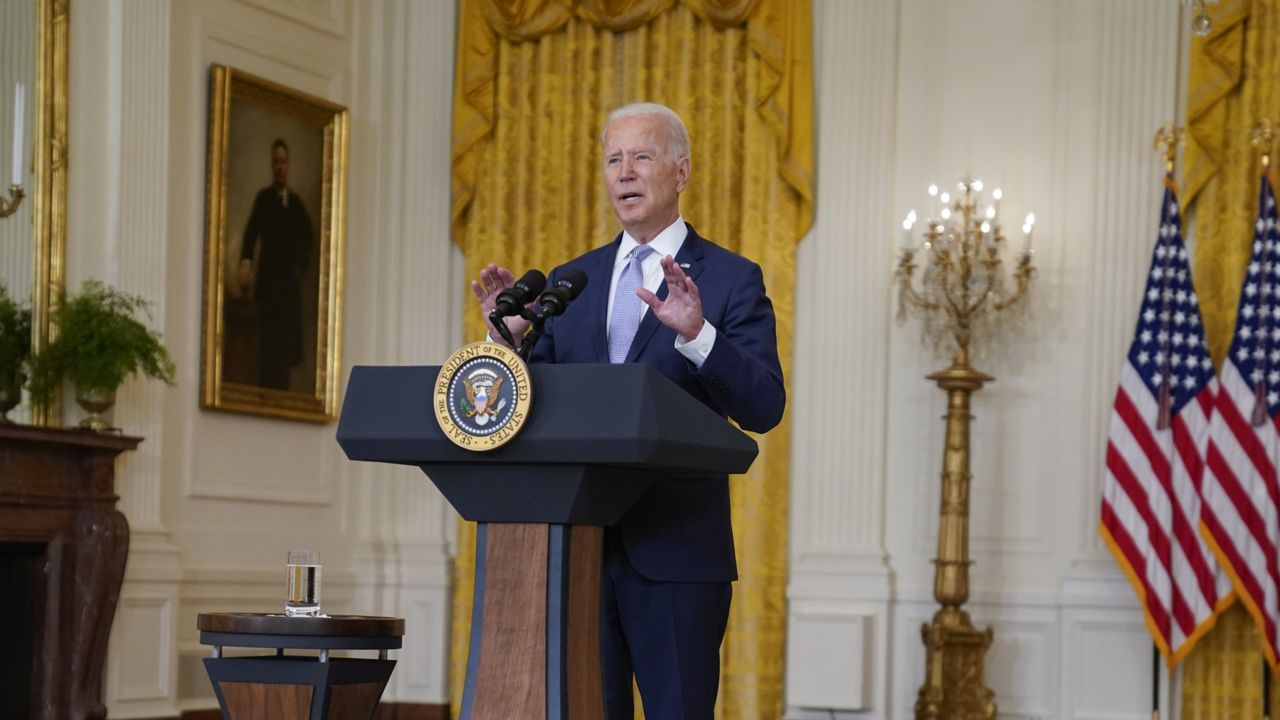President Joe Biden outlined his administration’s plan to reduce the price of prescription drugs on Thursday, calling on Congress to take action to reduce the high cost of life-saving medication — a key Democratic priority.
“Today, working families and too many seniors are struggling to make it work. Today, one in four Americans who take prescription drugs struggle to afford it,” Biden said in a speech from the White House. “We have to change this. And we can.”
On average, Americans pay 2-3 times as much as people in other countries for prescription drugs, and a quarter of Americans struggle to afford their medications, the White House said.
Biden’s plan would, in part, facilitate the import of drugs from Canada, in order to offer states and tribes “biosimilar drugs that give patients the same exact clinical benefit but at a fraction of the price,” per the White House.
“These are drugs that the FDA has determined are safe, and they are going to make sure the drugs get to the states and tribes safely,” Biden said of the plan.
The proposal also focuses heavily on Medicare and its inability to negotiate lower prices for prescription drugs, saying the government must “establish a firm cap on the amount that Medicare beneficiaries have to pay out-of-pocket for drugs each year.”
The White House hopes the proposed changes have a large impact on the cost of many life-saving drugs, including insulin, a prescription that typically costs ten times more in the United States than in any other developed country, according to the Mayo Clinic.
The price of analog insulin — used to help the body convert glucose into energy — has skyrocketed “inexplicably” over the past two decades, the clinic says, shooting up from an average price of $21 in 1999 to $332 in 2019. The formula of the most commonly used versions of the drug have not been changed in over 20 years.
In the lead-up to Biden’s speech on Thursday, the White House Twitter account shared a video of Gail, an American citizen with Type 1 diabetes who knows firsthand the impact of rising drug prices.
“Insulin is every day, every week, every month, every year, for the rest of my life,” Gail said in a videotaped conversation with the president.
Gail took over the White House Twitter account for the day, writing in part: “Right now, Medicare isn't allowed to negotiate the price of prescription drugs. President Biden’s Build Back Better Agenda would allow Medicare to negotiate, bringing costs down so Americans won't have to ration or go without their life-saving medicine.”
Under Biden’s plan, Medicare would have the power to negotiate prescription drug prices directly with pharmaceutical companies in order to reduce drug costs for millions of Americans.
“Every other type of health care service — from how much a doctor can charge for a visit, a hospital visit, crutches, wheelchairs — Medicare is allowed to negotiate,” the president said Thursday. “The only thing Medicare is not allowed to negotiate are prices for prescription drugs. My plan gets rid of that prohibition.”
By taking action, Biden is putting his political weight behind one of Democratic leadership's biggest priorities.
The COVID-19 pandemic has drawn renewed attention to health care costs. The White House is continuing its push to get Americans enrolled in health insurance under the Affordable Care Act. The Biden administration opened a special enrollment period to enroll for health care through the healthcare.gov portal in February. Roughly 2.5 million Americans have enrolled in the Affordable Care Act in the months since.
The pandemic has also increased attention on pharmaceutical companies, who have been praised for their work in quickly developing COVID-19 vaccines.
